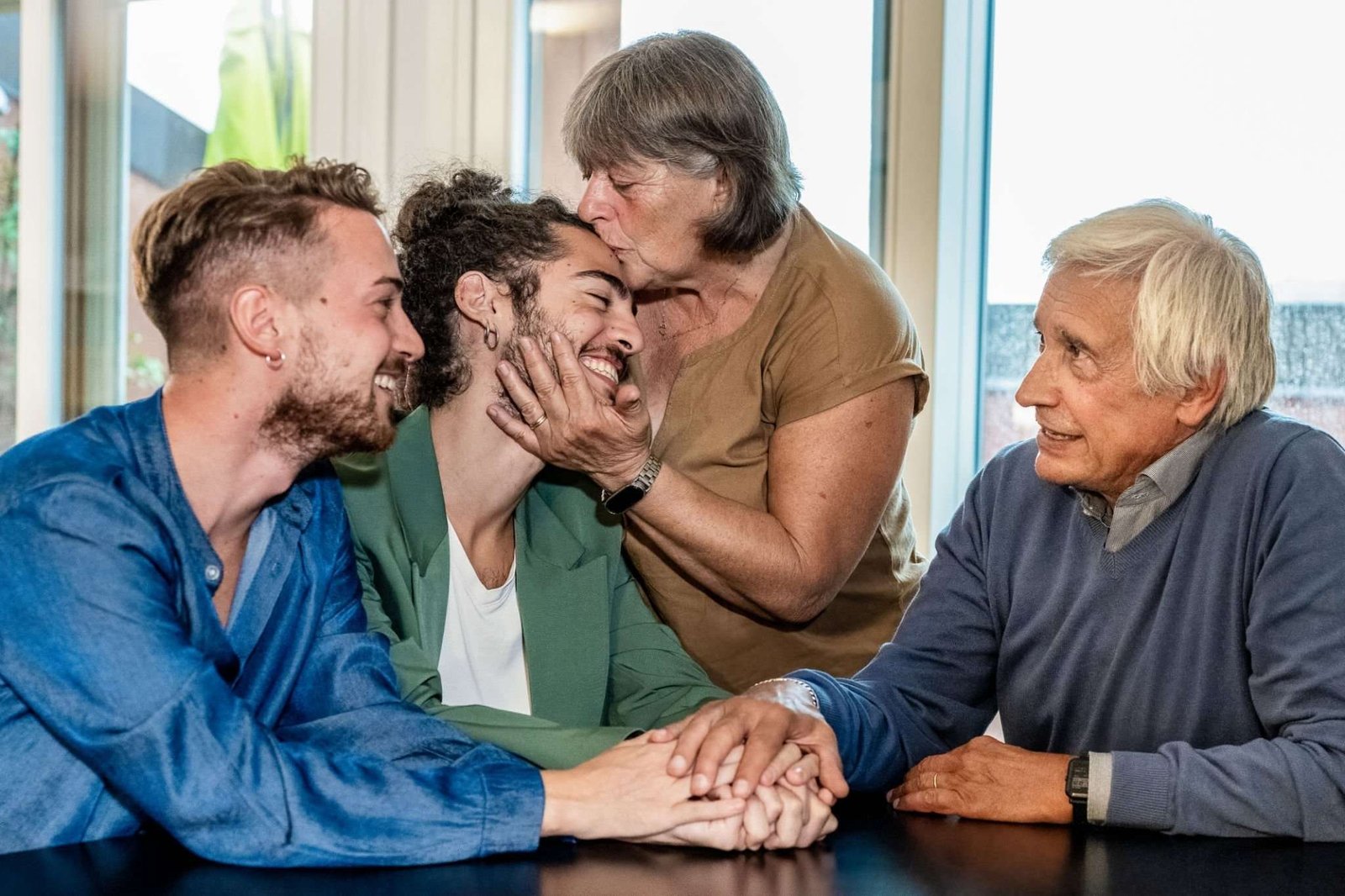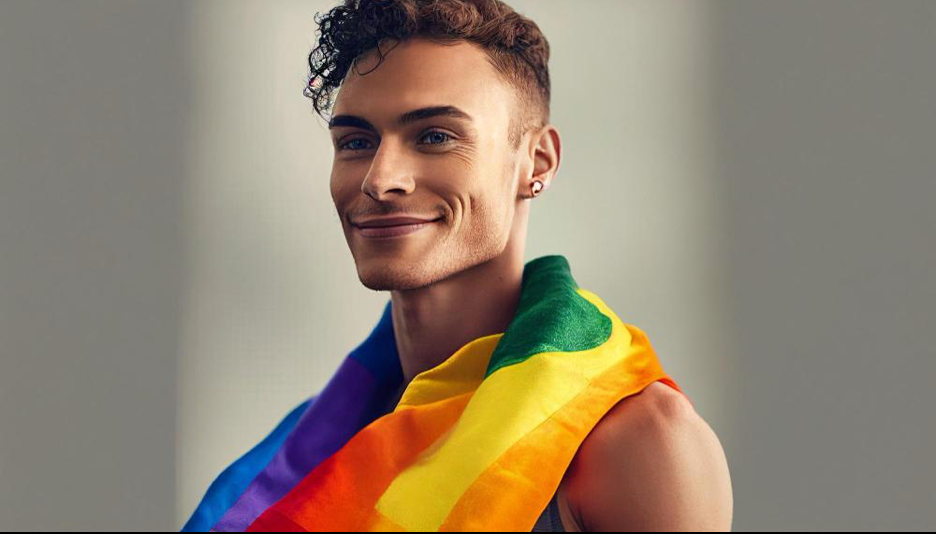
“Coming out” refers to the process of disclosing your sexual orientation, gender identity, or both, to friends, family, or the wider world. It’s a deeply personal journey of self-discovery and can be a powerful act of authenticity.
But why is coming out so important? Living authentically and true to who you are can have a profound impact on your well-being. Suppressing your true self can lead to feelings of isolation, anxiety, and depression. Coming out allows you to connect with others who share your experiences and build a support system that fosters self-acceptance.
Have you ever felt like there’s a part of yourself you can’t quite share with the world? For lesbian, gay, bisexual, transgender, and queer (LGBTQ+) individuals, this feeling can be particularly strong.
The LGBTQ+ community encompasses a wide range of identities. Sexual orientation refers to who you are attracted to romantically or sexually (e.g., lesbian, gay, bisexual, pansexual). Gender identity, on the other hand, is your internal sense of being male, female, or something entirely different. It may or may not align with the sex you were assigned at birth (e.g., transgender, non-binary). Understanding these basics is crucial for appreciating the diversity of coming-out experiences.
Coming Out Narratives
Coming out isn’t a one-time event; it’s a process that unfolds in stages. Often, the first step is self-discovery, a period of questioning and exploring your feelings. This can be a confusing and lonely time, but there are resources available to help you navigate these emotions after self-acceptance comes the decision to share your identity with others. This might start with a close friend or family member, or it could be a public declaration. There’s no right or wrong way to come out; the most important thing is feeling safe and comfortable.
Coming-out stories are as varied as the individuals themselves. As you will read from the real stories of some LGBTQ+ people below, some people experience overwhelming support from loved ones, while others face rejection and even discrimination. It’s important to remember that coming out can be a rollercoaster of emotions, with moments of joy and acceptance intertwined with fear and disappointment.
One crucial aspect of coming out is finding your chosen family. These are the people who love and accept you for who you truly are, regardless of your sexual orientation or gender identity. LGBTQ+ communities offer a safe space to connect with others who share your experiences and build a network of support.
Different Ways to Come Out:
Coming out can happen in various ways depending on the individual’s comfort level and circumstances. Some common methods include:
● Verbal communication over the phone, allows the person to have the conversation while maintaining some physical distance and privacy.
● Sending a text message provides a sense of control over exactly how the message is conveyed and allows the recipient time to process the information before responding.
● Writing an email, similar to texting allows for a more detailed explanation of one’s identity and feelings.
● Composing a letter is a more traditional approach that permits the writer to carefully craft their thoughts and gives the recipient space to digest the news.
● Having an in-person conversation can feel more personal and intimate but also requires confidence to openly discuss something vulnerable face-to-face.
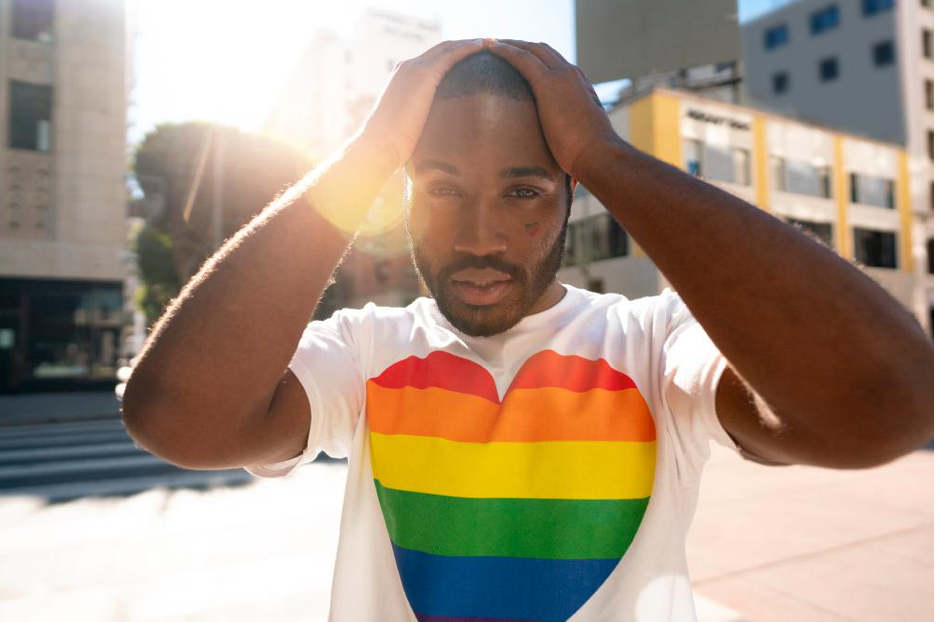
Personal Coming Out Stories
Story 1:
Get ready, it’s a long one.
I was just a few weeks away from turning 18 when I finally accepted that I was gay. Before that, I had convinced myself that I was bisexual. The first feelings I had for the same sex were when I was 14, though I insisted I was straight for a while before acknowledging that I liked guys. I refused to put any real thought into whether or not I liked girls because I was so uncomfortable with homosexuality back then.
My only knowledge of gay people came from shows like Family Guy and South Park, which often used outdated stereotypes for cheap laughs, so I believed all gay men fit those stereotypes. But by the time I was 16, I realized that not all gay men were effeminate. I was only into masculine men, and I never cared for shopping, crossdressing Sex and the City, or any of the activities stereotypically associated with gay people. There were points throughout puberty when I was comfortable with the idea of being gay, but those moments vanished completely.
At age 15, when I had a brief period of feeling at ease with my gay identity, I disclosed this to my parents. They didn’t believe me. They were just as ignorant as I had been and pointed out that as someone who listened to Eminem and preferred to hang out with other boys, I couldn’t possibly be gay. They advised me to seek out a companion who shares similar hobbies.
Additionally, they were convinced that I only wanted to “be like gay people” because I was looking up gay rights on Wikipedia and wanted attention. When I was 16, they still believed those same stereotypes. For the second time, I was comfortable with the possibility of being gay. But when my parents found out I was still researching gay rights, they explained to me that this was confusing me and that I should give girls a chance. I was very angry because I couldn’t believe that they, who I thought to be otherwise open-minded and down-to-earth people, would believe that bullshit.
However, I had never had a girlfriend. I was friends with a girl who went to an after-school course with me, and I had no interest whatsoever in pursuing a relationship with her. I clarified to my parents that she was merely a friend, and indeed she was. I didn’t invite a girl to my high school graduation celebration. At the same time, the media began portraying gay characters in more diverse ways, and this helped challenge how my parents saw gay people.
Story 2:
This may not seem as motivational, but I wanted to share this anyway.
I realized my attraction to the same sex during my early teenage years, which coincided with the period when most people started experiencing their initial romantic feelings. I’ve never felt the excitement or intense emotions typically associated with crushes or falling in love with girls; those feelings have always been elicited by boys.
I always told my parents everything, especially my dad. We always had long talks. So I decided to tell them about my discovery about myself, hoping they would accept me. Gay wasn’t as accepted years ago as it is now.
So I waited until we were having a long, meaningful conversation, the three of us and my twin baby brother and sister. I told them that I felt an attraction towards boys. I told them how when my good friend whom I’d developed a ‘crush’ on hugged me after a football game, basketball, or soccer, I’d feel queasy in a good way and happy.
My parents were shocked! They didn’t accept this at all. They instantly began to yell at me and say horrible, homophobic things.
Fast forward a few years. My parents weren’t close to me anymore. We didn’t interact much. It took a huge toll on me, and it got to the point where I never ate with them made eye contact, or spoke to them unless needed. I got very depressed as well. I attempted to date a girl with the hope of making her happy, but eventually, she realized how much I disliked it. And they saw how depressed I was – the bags under my eyes, greasy face and hair, I was getting skinnier.
They began to push aside the fact that I was gay and instead focused on me being their son.
Story 3:
My journey of discovery began when I was just a young, inquisitive child, around 7 or 8 years old, stumbling upon the existence of the LGBTQ+ community via the internet… And indeed, it was through those corners of the internet.
The next few years it always kind of stayed in the back of my mind as something interesting and new. I didn’t understand it as much as I do now, but I had an idea. This was about 2014-2015 when gay characters in shows/movies started appearing a bit more. So I guess that helped too.
Later, around the age of 10 or 11, I discovered that some of my family members were part of the LGBTQ+ community. This once-oblivious idea was right in front of me the whole time. But still, I never fully understood it.
As elementary/young middle school kids do, phrases like “that’s gay” were common. I never really liked the fact that people could just say that and shrug it off, but to act “normal” I said it too.
About the time I was 12-13 I engaged in my first “relationship” (be it online). This wasn’t the smartest thing I’ve done but I learned a lot. The girl in question identified as “transgender”. I didn’t really know much about it but I went along because she identified (and still does) as a female. This lasted about 3 months and I was introduced to the terms bi, pan, trans, and the differences between each. So I leapt and started personally identifying as bi/pan.
Story 4:
As a 16-year-old Muslim girl living in a deeply conservative Islamic nation, the concept of homosexuality was entirely forbidden and unspoken, making my realization of my lack of interest in men and my attraction towards women quite perplexing. I had never considered such feelings to be out of the ordinary since discussions on attraction were virtually nonexistent in my surroundings.
The term “gay” first came to my attention during school, a concept with which I was entirely unfamiliar at the time, leading me to question my sanity. It wasn’t until I sought answers online that I began to grasp the significance of my feelings, though acceptance remained a challenge.
We were taught it was a sin and a shame to society and religion so I just ignored it and tried acting normal and faking interest in boys that put a lot of toll on my mental health and by the time I was in 8th grade I was depressed and anxious.
I had lost all my motivation for a future and all my dreams. I had a lot of failed friendships in the past and I was seriously affected by it so when I met a few people that year and became friends with them I couldn’t believe I made some friends again and I was getting better for a while. I had become close with one of them and we eventually became best friends but that’s when it all started going downhill again.
I came to understand that my feelings for her (whom we’ll refer to as A) had grown into a crush. She was a beautiful Christian girl, and our friendship held/is holding a unique significance. Yet, recognizing that my feelings had deepened, I couldn’t help but feel a sense of guilt over it.
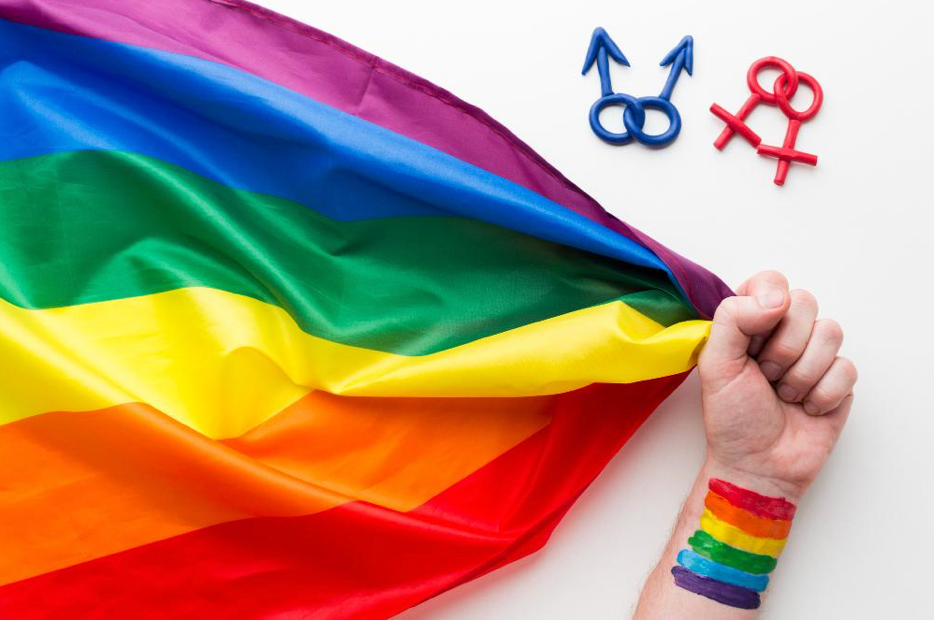
The Impact of Coming Out
Positive Impacts:
● Self-Acceptance and Increased Self-Esteem: Coming out allows you to live authentically, which can lead to a stronger sense of self-worth and confidence. The burden of hiding your true self is lifted, leading to greater emotional well-being.
● Deeper Connections: Living openly allows you to connect with others on a more genuine level. You can build relationships based on honesty and shared experiences within the LGBTQ+ community.
● Improved Mental Health: Studies show that coming out can decrease anxiety, depression, and feelings of isolation. Living authentically reduces internal conflict and creates a pathway toward greater happiness.
● Sense of Belonging: Finding your chosen family and connecting with the LGBTQ+ community provides a safe space and a strong support system. You’ll be surrounded by people who understand your experiences and celebrate your identity.
Negative Impacts:
● Rejection and Discrimination: Unfortunately, LGBTQ+ individuals can face rejection from family, friends, or even society as a whole. This may lead to significant distress and isolation.
● Limited Legal Protections: In certain areas, individuals identifying as LGBTQ+ might face limited legal safeguards concerning employment, housing, and matrimonial rights.
● Internalized Homophobia or Transphobia: Negative societal messages about LGBTQ+ identities can lead to internalized self-doubt and shame. Coming to terms with these messages can be a complex process.
How Allies Can Support LGBTQ+ Individuals During and After Coming Out
● Allies play a crucial role in creating a safe and inclusive space for LGBTQ+ individuals. Here’s how you can be a supportive friend, family member, or colleague:
● Educate yourself. Learn about LGBTQ+ identities and the challenges they face.
● Practice active listening. Offer a listening ear without judgment when someone is ready to come out.
● Use inclusive language. Respect people’s pronouns and avoid making assumptions about their sexuality or gender identity.
● Challenge discrimination. Speak up against homophobic or transphobic remarks.
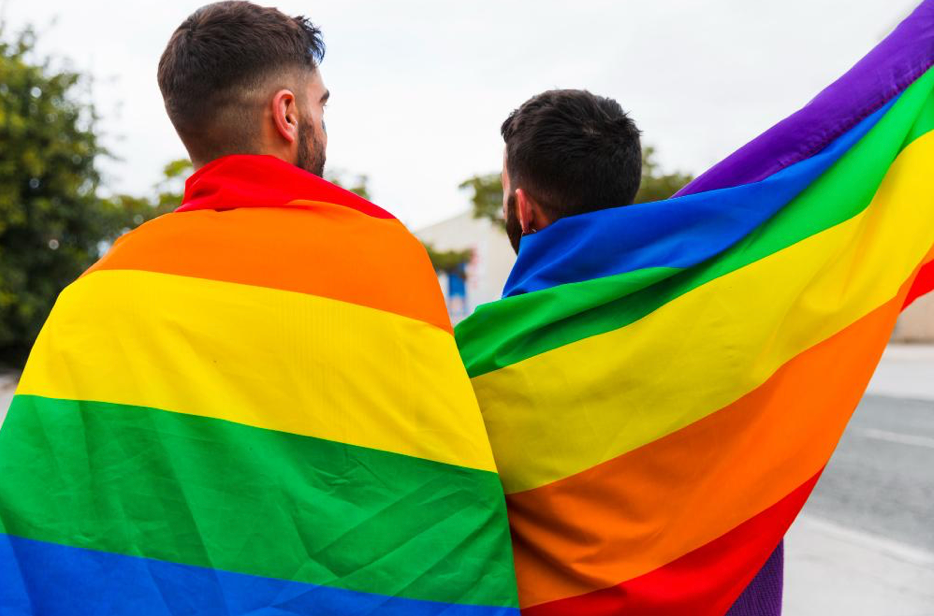
Coming Out In Other Areas of Life.
Coming out can happen at any point in life, and there are specific considerations for different milestones.
Coming Out in School or Workplace: School environments can vary in terms of LGBTQ+ acceptance. If you decide to come out at school, connect with LGBTQ+ student groups or find supportive teachers. In the workplace, research your company’s policies on diversity and inclusion. Consider coming out to trusted colleagues first before making a public announcement.
Navigating Romantic Relationships: Dating can be a thrilling yet daunting experience for LGBTQ+ individuals. Be transparent and truthful about who you are with potential partners. There are online dating platforms specifically catering to LGBTQ+ communities.
Establishing Chosen Families: Chosen families provide a sense of belonging and support. LGBTQ+ centres, community events, and online forums can help you connect with like-minded individuals.
Conclusion
Sharing coming-out stories is a powerful act of courage and vulnerability. It normalizes LGBTQ+ experiences, fosters understanding, and inspires others to live authentically.
If you’re an LGBTQ+ individual considering coming out, remember there’s no one-size-fits-all approach. Do what feels right for you, and know that there are countless resources and supportive communities available. Coming out is a journey, not a destination, and there will be ups and downs along the way. Embrace who you are, celebrate your identity, and create a life filled with love and acceptance.
Resources for LGBTQ+ Individuals and Allies
Coming out can be a liberating and empowering experience, but it’s also important to have access to support and information. Here are some resources that can help LGBTQ+ individuals and allies on their journeys:
- Crisis Intervention and Support:
- The Trevor Project (https://www.thetrevorproject.org/): A non-profit organization providing crisis intervention and suicide prevention services to LGBTQ+ youth.
- The Trevor Project (https://www.thetrevorproject.org/): A non-profit organization providing crisis intervention and suicide prevention services to LGBTQ+ youth.
- Community and Advocacy:
- PFLAG (https://pflag.org/): Another non-profit organization that offers support, education, and advocacy for LGBTQ+ people and their families.
- GLAAD (https://glaad.org/): A media monitoring organization that works to ensure accurate and respectful representation of LGBTQ+ people in the media.
- PFLAG (https://pflag.org/): Another non-profit organization that offers support, education, and advocacy for LGBTQ+ people and their families.
- Mental Health:
- Substance Abuse and Mental Health Services Administration (SAMHSA) – LGBTQ+ Resources (https://www.samhsa.gov/): This page provides resources for LGBTQ+ people and healthcare providers, specifically focused on substance abuse treatment.
These are just a few of the many organizations that can provide support and information to LGBTQ+ individuals and allies. With the help of these resources, you can find the strength and courage to live authentically and create a life filled with love and acceptance.

